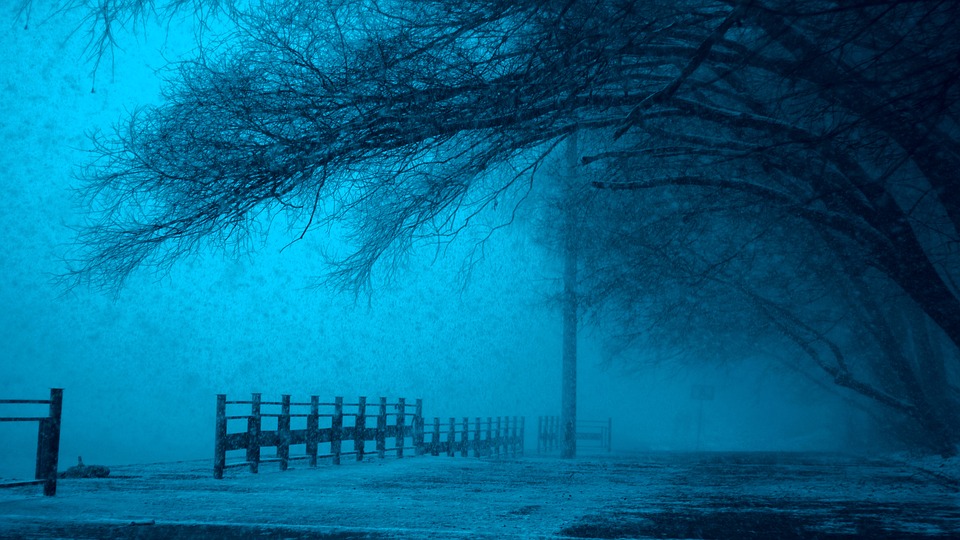Why we fear the dark
Interview with
If you went outside right now, would you be able to see the Milky Way? The fact  is that as more of us move to cities, light pollution is creeping into all of our lives. But how did we end up in a light-drenched world in the first place? Because of our fear of the dark, as Graihagh Jackson found out...
is that as more of us move to cities, light pollution is creeping into all of our lives. But how did we end up in a light-drenched world in the first place? Because of our fear of the dark, as Graihagh Jackson found out...
Graihagh - Are you afraid of the dark? I used to think that witches would come and bite my toes off it I lay on my belly and hung my feet over the edge of the bed. The real kicker was that this was the most comfortable way to sleep. But where does this fear of the dark come from?
Roger - It's impossible to say with any precision when our fear of the dark began, but certainly night was man's first necessary evil.
Graihagh - That's Roger Ekirch, historian from Virginia Tech. And you can see why it might be our first necessary evil...
Picture this... you're a caveman, it's nighttime and you're all tucked up with your furry skins ready for sleep, ahh. And then... what was that? You don't want to seem like a big jessie so you don't do anything - you just listen.
Jez is that a... that's it you're on high alert. Except it's pitch black, you can't see a thing so you listen all night long, praying for the Sun to come up, and that you won't get eaten alive.
Your fear, initially at least, was what was in the dark and then, eventually, your fear became of the dark itself. And this is an idea that Edmund Burke had...
Roger - The famous philosopher and political theorist in the eighteenth century was of the opinion that our fear was inherent.
Graihagh - But not all believe this to be true.
Roger - John Locke's explanation was that there was no such inherent fear. That, in fact, children were told ghost stories in order to get them to go to bed, in order to control them and, hence, this fear was instilled. More recently, psychologists have tried to bridge the gap. They have speculated that there was no innate fear of darkness at first but naturally, deprived of vision at a time when predators roamed free. Men and women, if they did not fear dark at the outset, they nonetheless quickly came to associate it with perils of all sorts, both real and imagined. So that by the time of ancient civilisations, virtually all associated darkness with demons, danger, and death.
Graihagh - And this makes sense, since being safely tucked up in bed in a house with locks and access to a light switch, we still fear the dark. Yet, instead of wolves, bears, and toe biting witches, it's criminals and car accidents. But, is there any evidence to suggest that there are more crashes and crooks at nighttime?
Roger - I think it's incontestable, although there are some fierce opponents of light pollution. The prime association being the International Dark Sky Association whose work I greatly admire. But to contend, as some member do, that there is no association between darkness and crime is poppycock in my opinion. The same with automobile accidents.
Graihagh - However, we have covered scientific research on the show that suggests precisely the opposite. Here's Rebecca Steinbeck from the London School of Hygiene and Tropical Medicine talking about her research she published last year. I played it to Roger too...
Rebecca - We invited every local authority in England and Wales to give us information on any changes that they had made to street lighting and, if they had made any changes to street lighting, what were the dates of those changes, and what were their locations. And then we were able to use data from the police on the locations and timings of road traffic casualties and crimes, and then we were able to model whether any changes in street lighting provision are associated with changes in road traffic casualties or crimes.
In the end, we were able to get data from sixty-two local authorities, which included over twenty-five thousand kilometres of road where there had been some form of street lighting change, and we found no evidence that these were associated with increases in road collisions or crimes.
Graihagh - Where's your evidence is what I'm trying to say when clearly this study suggests that, actually, there isn't more crime associated, or road collisions even, with darkness?
Roger - To that I would say, for that one study there are at least a five or ten that contradict it. I would also say that it's a matter of common sense whether you're driving a car down a dark road that you do not know, or in my case, walking in Richmond, Virginia, a city with a very high rate of crime, it can be very, very dangerous. I was reassured by the fact that there was any number of street lamps.
Graihagh - So in your opinion then Roger, our fear of the dark is still justified?
Roger - Yes, oh yes. To limit or, in some cases, entirely do away with street lamps would be, to my knowledge, the first example in human history whereby a widely used technology of proven merit had been rejected or constrained.
References
- Previous How democracy works in nature
- Next Our night sky









Comments
Add a comment